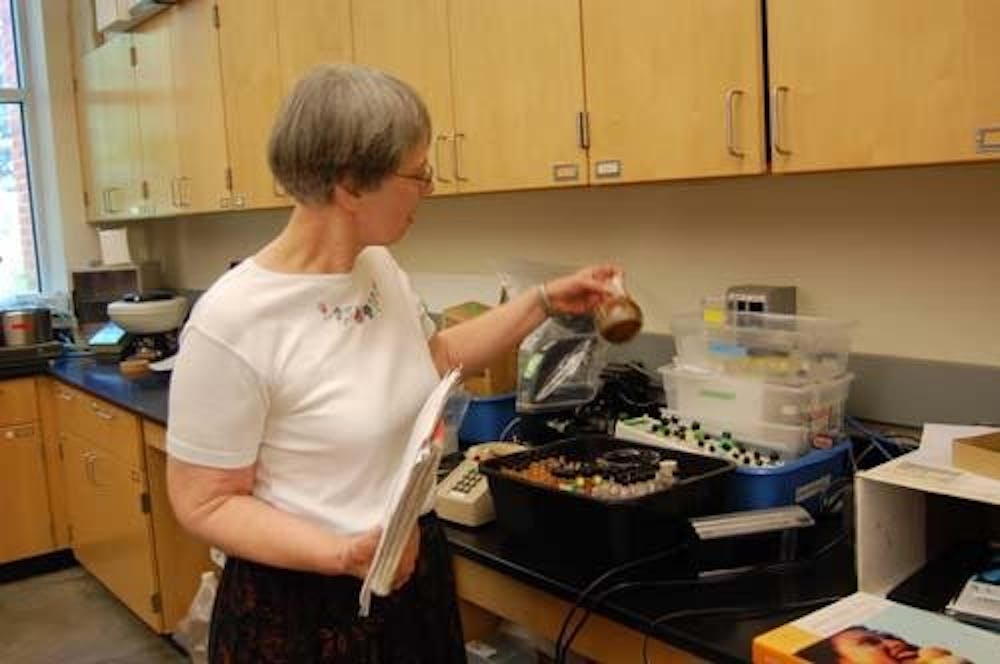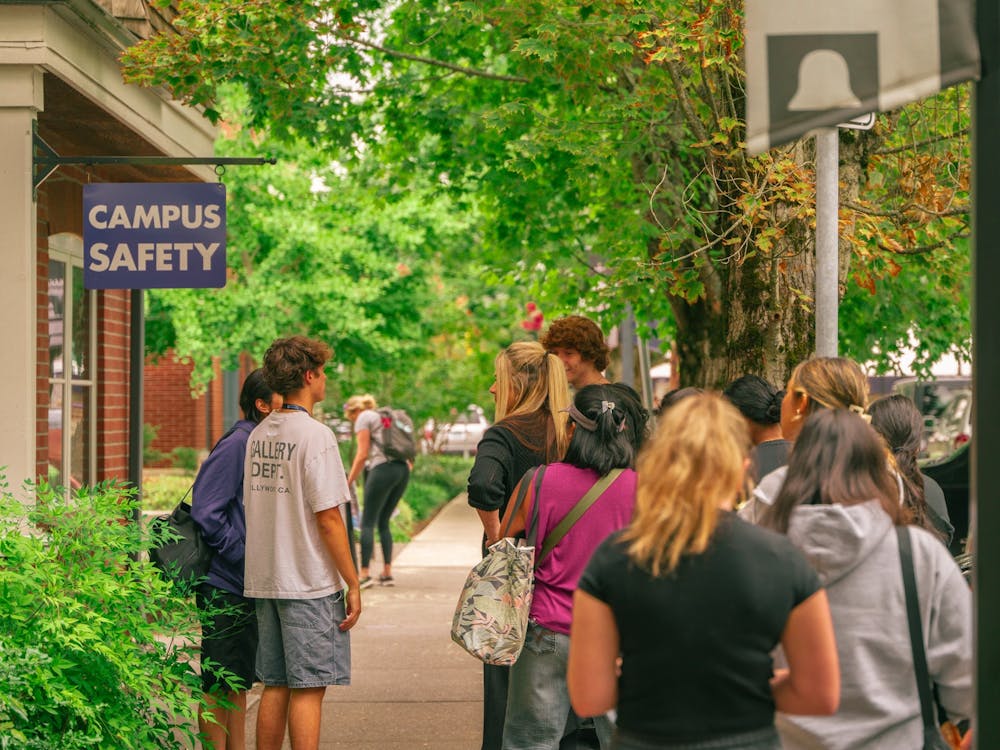Angela Hoffman, a chemistry professor and Benedictine Sister, researches a cure for cancer
During her 23 years at UP, Angela Hoffman has worked with about 150 students on chemistry research. Hoffman is also a Benedictine sister, and said her research is inspired by her faith. (Stephanie Matusiefsky | The Beacon)
By Philip Ellefson, Staff Writer ellefson14@up.edu
Sister Angela Hoffman has been researching the same chemical - Taxol, an anti-cancer drug - for over 20 years. But to her, it's still as exciting as it was in 1990.
"It's like a treasure hunt, and you just want to keep looking and looking and looking, and you keep asking questions," Hoffman said.
Hoffman, a chemistry professor, was awarded a fellowship last month by the American Chemical Society (ACS) for her work with the society and her contributions to scientific research. During her 23 years at UP, Hoffman has advised the ACS student group at UP, held demonstrations at OMSI and helped sponsor National Chemistry Week.
Hoffman's research on Taxol is focused primarily on how it is created by plants like the yew tree and the hazelnut tree, as well as some fungi. This research has led Hoffman to file four patents, which cover different methods of extracting Taxol from various plants.
She was originally drawn to this area of research in 1990, when a senior chemistry major wanted to do a project on trees. He got the idea of researching the yew tree from an Oregonian article, and Hoffman helped him with his project.
Since then, Hoffman has continued to work with students - over 150 of them, by her estimate. She sees her student collaborators as important contributors of her research.
"You don't do these kinds of projects on your own. You do them as a collaboration," Hoffman said. "So people who think scientists work alone in the lab by themselves are totally wrong. You can't do it."
Bill Miechelson, a senior biology major, took his first college class - an 8:10 a.m. general chemistry class - from Hoffman.
"She's really invested not only in my learning, but also in all the classes she teaches," Miechelson said.
"She's really devoted to helping every student."
Miechelson is working with Hoffman to identify another chemical produced by yew trees that kills insects. The research could possibly lead to a useful natural pesticide.
"This project is something nobody's done before," Miechelson said. "It's really fun to do something no one's thought about."
Hoffman enjoys watching students go through the process of research.
"I like to see them discover things. You see the light turn on, and they say, 'Oh wow, look at that!' and then they're hooked," Hoffman said. "That's pretty cool to see."
Chemistry professor Ronda Bard said Hoffman is responsible for motivating student researchers' curiosity.
"They have loved the opportunity to do the work. They put in a lot more work than they're required to, because they want to," Bard said. "That curiosity in the students is derived from Dr. Hoffman."
Nhan Tran, a sophomore biochemistry major is also conducting research with Hoffman, agrees that his research with Hoffman has been exciting.
"I do really enjoy it. Sometimes I spend an entire day doing my work," Tran said.
Tran's work with Hoffman is related to another potential anticancer drug found in a medicinal plant. His family is from Vietnam and has been using for generations.
Although it is serious research, Tran and Hoffman have fun working in the lab.
"She and I were joking about how we might get a Nobel Prize," Tran said.
As a Benedictine religious sister, Hoffman's curiosity about chemicals in the natural world is driven by her faith.
"God puts stuff out there in the environment. I'm just out there trying to figure out what's going on," Hoffman said. "I'm the treasure person, and the treasure's already out there."
Bard said Hoffman's love of discovery shows in the way she works.
"She has passionate curiosity. She has a blast, she loves science," Bard said. "That's a great benefit for the department and the University, I think."
The "treasure hunt" is what Hoffman sees as the primary reason for doing research.
"That's what research is all about - to find the things that are in nature or the things that are really interesting that nobody thought about before," Hoffman said. "So too much curiosity can get you somewhere."
(Stephanie Matusiefsky | The Beacon)
Angela Hoffman was given a fellowship award by the American Chemical Society last month for her contribtions to scientific research. Hoffman’s research focuses on Taxol, an anticancer drug, and she has filed four patents about different ways to extract the drug from plants. (Stephanie Matusiefsky | The Beacon)








